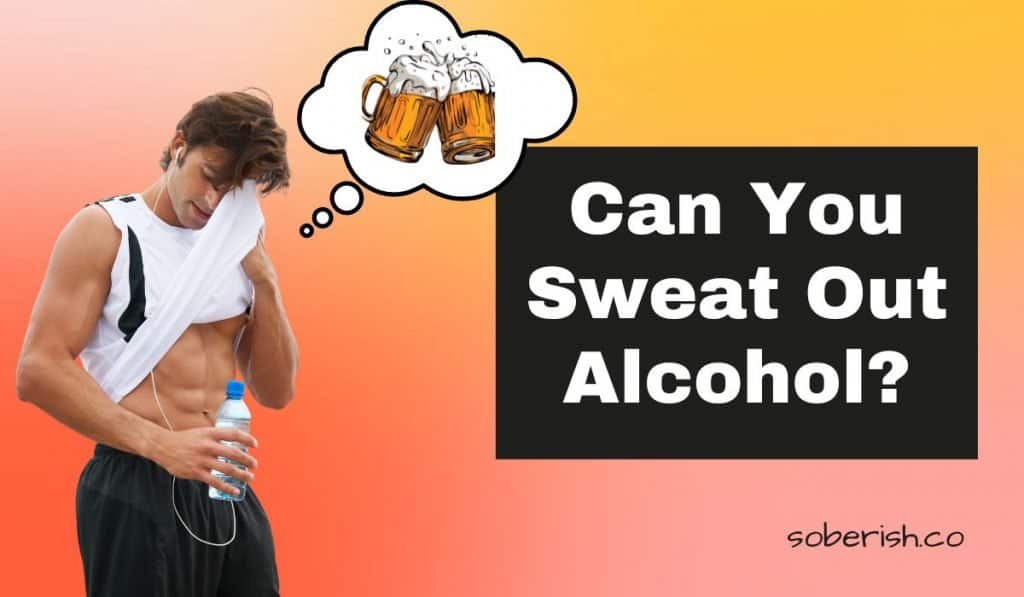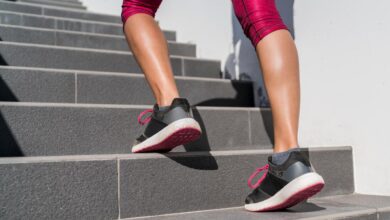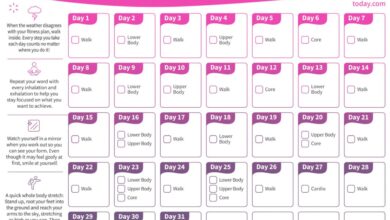
Can Sweat Hangovers Ruin Your Day?
Can sweat hangovers ruin your day? It’s a question many of us have asked after a particularly intense workout, a night of heavy drinking, or even a long day in the summer heat. That feeling of fatigue, muscle aches, and overall grogginess can be incredibly frustrating, especially when you’re trying to get back to your normal routine.
But what exactly is a sweat hangover, and what can we do about it?
Sweat hangovers are a real phenomenon, and they’re caused by a combination of factors, including dehydration, electrolyte imbalance, and even certain medications. Understanding the underlying causes can help us take steps to prevent them, and managing the symptoms can make a world of difference in how we feel after a sweaty episode.
What is a Sweat Hangover?
You’ve probably heard of a hangover after a night of excessive drinking, but have you ever experienced a “sweat hangover”? This peculiar phenomenon, also known as “post-exercise malaise,” is a state of fatigue, muscle soreness, and general discomfort that can occur after intense physical activity, especially when combined with dehydration.
Symptoms of a Sweat Hangover
A sweat hangover can manifest in various ways, with symptoms ranging from mild to severe. Common symptoms include:
- Muscle soreness and stiffness
- Fatigue and weakness
- Headache
- Nausea and dizziness
- Dehydration
- Irritability and mood swings
Distinguishing a Sweat Hangover from Regular Sweating
While regular sweating is a natural physiological response to heat or physical exertion, a sweat hangover is a distinct condition characterized by persistent discomfort and fatigue. The key difference lies in the duration and intensity of the symptoms. Regular sweating typically subsides quickly once the triggering factor is removed, while a sweat hangover can linger for several hours or even days.
Activities that Trigger a Sweat Hangover
Several activities can lead to a sweat hangover, particularly those that involve prolonged, intense physical exertion. Here are some common examples:
- Intense workouts:High-intensity interval training (HIIT), marathon running, or prolonged weightlifting sessions can deplete energy stores and cause muscle damage, contributing to a sweat hangover.
- Hot yoga or spin classes:These activities combine physical exertion with high temperatures, increasing the risk of dehydration and muscle fatigue.
- Outdoor activities in hot weather:Hiking, gardening, or even simply walking in extreme heat can lead to excessive sweating and dehydration, setting the stage for a sweat hangover.
Causes of a Sweat Hangover
A sweat hangover, also known as “post-exercise malaise,” is a feeling of fatigue, muscle soreness, and general discomfort that can linger for several hours or even days after a strenuous workout. While the exact causes of a sweat hangover are not fully understood, several factors are believed to play a role.
I was just thinking about how a “sweat hangover” feels so much like a real hangover, and it got me wondering if it’s all just in my head. Maybe it’s the dehydration, or maybe it’s the fact that my body is still trying to recover from pushing itself to the limit.
It’s funny how similar the feeling is to how I feel after a big meal, especially when I’ve been indulging in processed foods. It makes me wonder if there’s a connection between my workout recovery and what I eat.
I mean, if you’re trying to be healthier, is is fake meat healthier than the real thing ? Anyway, I think I’ll stick to my post-workout smoothies and see if that helps with the “sweat hangover” next time.
Dehydration
Dehydration is a significant contributor to sweat hangover. During intense exercise, our bodies lose fluids through sweat. If we don’t replenish these fluids adequately, we can become dehydrated, leading to various symptoms like fatigue, muscle cramps, and headaches, which are common features of a sweat hangover.
That post-workout feeling, the one where you’re energized but also a little drained, can be a bit of a paradox. We call it a “sweat hangover,” and while it’s a good sign you pushed yourself, it can make getting going in the morning feel like a mountain climb.
Luckily, a little gentle stretching can do wonders to ease those aches and boost your energy. Check out these stretches to energize your morning with a 5-pose yoga fix and you’ll be feeling refreshed and ready to tackle the day, sweat hangover be gone!
Electrolyte Imbalance
Along with water, we also lose electrolytes, such as sodium, potassium, and magnesium, through sweat. Electrolytes are essential for various bodily functions, including muscle contraction, nerve impulse transmission, and fluid balance. An imbalance in electrolytes can disrupt these functions, contributing to the symptoms of a sweat hangover.
Excessive Alcohol Consumption
While not directly related to exercise, excessive alcohol consumption can exacerbate the symptoms of a sweat hangover. Alcohol is a diuretic, meaning it increases urine production and can lead to dehydration. Additionally, alcohol can interfere with the body’s ability to replenish electrolytes, further contributing to an imbalance.
Medication Side Effects
Certain medications, such as diuretics and some antihistamines, can also contribute to dehydration and electrolyte imbalance, potentially triggering a sweat hangover.
Symptoms of a Sweat Hangover
A sweat hangover, also known as “exercise hangover,” can manifest in various ways, depending on the individual’s fitness level, intensity of the workout, and other factors. While some might experience only mild discomfort, others might feel significantly debilitated. Understanding the common symptoms can help you recognize and manage this condition.
Common Symptoms
The most common symptoms of a sweat hangover include:
- Fatigue:Feeling tired and drained, even after a good night’s sleep, is a hallmark of a sweat hangover. This is because your body is still recovering from the strenuous physical activity.
- Muscle Soreness:Delayed-onset muscle soreness (DOMS) is a common symptom. It typically sets in 12 to 24 hours after intense exercise and can last for several days. The soreness can range from mild discomfort to severe pain, making it difficult to move.
You know that feeling of being totally drained after a big workout, even though you feel like you could still go on? That’s what they call “sweat hangover,” and it’s something ultra-walkers are all too familiar with. If you’re thinking about taking on a long-distance walking challenge, everything you need to know about ultra walking is a great resource to get you started.
But be prepared, because even with the best training and preparation, sweat hangover is a common side effect of pushing your body to the limit.
- Headache:Dehydration, electrolyte imbalances, and inflammation can all contribute to headaches after intense workouts. Headaches can range from mild to severe, and they may be accompanied by nausea or dizziness.
- Dizziness:Dehydration, low blood sugar, and electrolyte imbalances can cause dizziness after strenuous exercise. This feeling can be mild or severe, and it may be accompanied by lightheadedness or nausea.
- Muscle Cramps:Muscle cramps are a common symptom of a sweat hangover, especially if you’ve lost electrolytes through sweating. Cramps can occur in any muscle group, but they are often found in the legs and calves.
- Weakness:You may feel weaker than usual, and even simple tasks can seem more challenging after a sweat hangover. This is due to the depletion of glycogen stores and muscle fatigue.
- Irritability:Some people experience irritability or mood swings after a sweat hangover, possibly due to fatigue, dehydration, and hormonal changes.
Variability of Symptoms
The severity of symptoms can vary greatly from person to person. Factors that can influence the intensity of a sweat hangover include:
- Fitness Level:Individuals who are not regularly active are more likely to experience more severe symptoms.
- Intensity of Exercise:High-intensity workouts or prolonged endurance activities are more likely to cause a sweat hangover.
- Hydration Status:Dehydration can exacerbate the symptoms of a sweat hangover. Proper hydration before, during, and after exercise is crucial.
- Electrolyte Balance:Losing electrolytes through sweating can contribute to muscle cramps, fatigue, and other symptoms. Replenishing electrolytes is important for recovery.
- Nutrition:Adequate nutrition before and after exercise can help prevent a sweat hangover. Consuming a balanced diet rich in carbohydrates, protein, and electrolytes is important for recovery.
- Sleep Quality:Getting enough sleep is essential for muscle recovery and overall well-being. Sleep deprivation can worsen the symptoms of a sweat hangover.
Examples of Individual Experiences
Here are some examples of how a sweat hangover might manifest differently in various individuals:
Example 1:A novice runner who participates in a marathon might experience severe muscle soreness, fatigue, and headaches for several days after the race.
Example 2:A seasoned athlete who trains regularly might only experience mild muscle soreness and fatigue after a challenging workout.
Example 3:A person who forgets to rehydrate after a strenuous workout might experience severe dehydration, dizziness, and muscle cramps.
Managing a Sweat Hangover
A sweat hangover, while not a medical condition, can significantly impact your well-being and daily activities. Managing its symptoms and taking steps to prevent it are crucial for a quick recovery.
Preventing Sweat Hangovers
Preventing a sweat hangover involves proactive measures to minimize the strain on your body during and after intense physical activity. These measures include staying hydrated, maintaining electrolyte balance, and gradually increasing exercise intensity.
- Hydration:Drinking plenty of water before, during, and after exercise is essential. Aim for 16-20 ounces of water two to three hours before exercise, and then 8 ounces every 15-20 minutes during your workout.
- Electrolyte Balance:Electrolytes are minerals lost through sweat, and replenishing them is crucial. Sports drinks or electrolyte-rich beverages can help restore these minerals.
- Gradual Exercise Intensity:Sudden increases in exercise intensity can put undue stress on your body. Gradually increasing your workout duration and intensity over time allows your body to adapt and reduces the risk of a sweat hangover.
Managing Sweat Hangover Symptoms
Managing sweat hangover symptoms can alleviate discomfort and speed up recovery. Rest, hydration, and electrolyte replenishment are key to managing fatigue, muscle cramps, and headaches.
- Rest:Allow your body adequate time to recover. Resting for at least 8 hours after a strenuous workout can help your muscles repair and rebuild.
- Hydration:Continue to drink plenty of water to rehydrate your body and replenish lost fluids.
- Electrolyte Replenishment:Consume electrolyte-rich beverages or foods like bananas, coconut water, or sports drinks.
- Muscle Cramps:Gentle stretching and massage can help relieve muscle cramps. Applying heat to the affected area can also provide relief.
- Headaches:Hydration and rest are often sufficient to alleviate headaches. Over-the-counter pain relievers can also provide temporary relief.
Home Remedies, Can sweat hangover
Several home remedies can help alleviate sweat hangover symptoms. These remedies can be combined with the above measures for faster recovery.
- Warm Bath:A warm bath can help relax muscles and relieve fatigue. Adding Epsom salts to the bath can further soothe sore muscles.
- Ginger Tea:Ginger has anti-inflammatory properties that can help reduce muscle soreness and headaches. Drinking ginger tea can be a soothing and effective remedy.
- Chamomile Tea:Chamomile tea has calming effects that can aid in relaxation and sleep. Drinking chamomile tea before bed can help improve sleep quality.
When to Seek Medical Attention
While most sweat hangovers resolve on their own, some cases may require medical attention. It’s important to know when a sweat hangover might be a symptom of a more serious condition.
Distinguishing a Sweat Hangover from Other Conditions
It’s crucial to understand the difference between a sweat hangover and other medical conditions that may present similar symptoms. While excessive sweating is a hallmark of a sweat hangover, other medical conditions can also cause profuse perspiration.
- Hyperhidrosis: This condition involves excessive sweating that is not related to heat or exercise. It can be localized to specific areas of the body or affect the entire body. Hyperhidrosis can be caused by various factors, including stress, anxiety, medications, and underlying medical conditions.
- Thyroid Disorders: An overactive thyroid gland (hyperthyroidism) can lead to excessive sweating, along with other symptoms like rapid heartbeat, weight loss, and anxiety.
- Diabetes: High blood sugar levels can trigger excessive sweating, especially during exercise or when experiencing stress. Other symptoms of diabetes include frequent urination, increased thirst, and unexplained weight loss.
- Infections: Certain infections, such as flu or pneumonia, can cause fever and sweating as the body fights off the infection.
When to Consult a Healthcare Professional
If you experience any of the following symptoms alongside excessive sweating, it’s important to consult a healthcare professional:
- High fever: A fever that remains above 100.4°F (38°C) for more than 24 hours could indicate a serious underlying infection.
- Severe dehydration: Signs of dehydration include dry mouth, fatigue, dizziness, and dark urine. If you’re unable to keep fluids down or experience severe dehydration, seek medical attention.
- Chest pain: Chest pain, especially when accompanied by shortness of breath, can be a sign of a heart attack or other serious medical condition.
- Confusion or disorientation: Confusion, disorientation, or difficulty concentrating can indicate a medical emergency, such as stroke or a serious infection.
- Unexplained weight loss: Sudden or significant weight loss, especially when accompanied by other symptoms, could indicate an underlying medical condition.
Sweat Hangover and Exercise

Sweat hangovers can be particularly challenging for those who enjoy vigorous exercise. While exercise is essential for overall health and well-being, it can also lead to dehydration and electrolyte imbalances, increasing the risk of a sweat hangover. Understanding the relationship between exercise and sweat hangovers is crucial for managing these symptoms and ensuring a positive experience during and after your workouts.
Hydration and Electrolyte Balance During Exercise
Maintaining proper hydration and electrolyte balance is paramount during exercise, especially in hot and humid conditions. Adequate hydration helps regulate body temperature, transports nutrients, and removes waste products. Electrolytes, such as sodium, potassium, and magnesium, are essential for muscle function, nerve transmission, and fluid balance.Here are some key guidelines for staying hydrated and maintaining electrolyte balance during exercise:
- Drink water before, during, and after exercise: Start your workout well-hydrated by drinking water in the hours leading up to your exercise session. Continue sipping water throughout your workout, especially during intense activity. After your workout, replenish lost fluids by drinking water or electrolyte-rich beverages.
- Choose the right beverages: While water is essential for hydration, electrolyte-rich beverages, such as sports drinks, can be beneficial during prolonged or intense workouts. These beverages help replenish lost electrolytes and provide energy. However, it’s important to choose sports drinks with moderate sugar content to avoid overconsumption of calories.
- Listen to your body: Pay attention to your thirst signals. Drink water or electrolyte beverages whenever you feel thirsty. Avoid waiting until you feel extremely thirsty, as this can indicate dehydration.
Minimizing Sweat Hangover Risk After Intense Workouts
While sweat hangovers are often associated with excessive alcohol consumption, they can also occur after intense workouts, particularly in hot and humid conditions. Following these tips can help minimize the risk of a sweat hangover after your exercise sessions:
- Gradual exercise progression: Avoid sudden increases in exercise intensity or duration, as this can increase the risk of dehydration and electrolyte imbalances. Gradually increase your workout intensity and duration over time to allow your body to adapt.
- Listen to your body: If you feel fatigued, dizzy, or lightheaded during your workout, stop and rest. Don’t push yourself beyond your limits. Respect your body’s signals and prioritize your well-being.
- Post-workout recovery: Allow your body time to recover after intense workouts. Engage in light activities, such as walking or stretching, and consume a balanced meal or snack to replenish lost nutrients and energy.
- Proper clothing and environment: Wear breathable clothing during exercise and choose a workout environment that is well-ventilated and temperature-controlled. This can help minimize excessive sweating and prevent dehydration.
Sweat Hangover and Alcohol: Can Sweat Hangover

Alcohol consumption can significantly contribute to a sweat hangover, adding another layer of discomfort to the already unpleasant experience. The combination of alcohol’s effects on the body and the physical exertion associated with sweating can create a perfect storm for feeling unwell.
Alcohol’s Effects on Hydration and Electrolyte Balance
Alcohol is a diuretic, meaning it increases urine production, leading to dehydration. This dehydration can exacerbate the symptoms of a sweat hangover, particularly if you’ve been sweating heavily during exercise or in hot weather. Alcohol also disrupts the body’s electrolyte balance, further contributing to dehydration and contributing to the feeling of fatigue and weakness associated with a sweat hangover.
Reducing the Risk of a Sweat Hangover After Drinking Alcohol
To mitigate the risk of a sweat hangover after consuming alcohol, it’s crucial to prioritize hydration and electrolyte balance.
- Drink plenty of water before, during, and after consuming alcohol.This helps to counteract the diuretic effect of alcohol and maintain hydration levels. Aim to drink at least one glass of water for every alcoholic beverage you consume.
- Choose lower-alcohol drinks.Drinks with a lower alcohol content will put less strain on your body and contribute less to dehydration.
- Avoid sugary drinks.Sugary drinks can worsen dehydration and contribute to a sugar crash, which can exacerbate the symptoms of a sweat hangover.
- Eat a balanced meal before drinking.A nutritious meal helps to slow down alcohol absorption and can help prevent a rapid drop in blood sugar levels.
- Avoid mixing alcohol with energy drinks.Energy drinks contain caffeine, which can further dehydrate you and increase the risk of a sweat hangover.
- Limit your alcohol intake.The more you drink, the greater the risk of dehydration and a sweat hangover.
Sweat Hangover and Medications

It’s not uncommon to experience excessive sweating as a side effect of certain medications. This can lead to a sweat hangover, characterized by persistent sweating, discomfort, and sometimes even fatigue, even after the medication has been taken.
Medications That Can Cause Excessive Sweating
Several types of medications can trigger a sweat hangover. It’s crucial to understand the potential side effects of any medication you’re taking and to discuss any concerns with your doctor. Here are some common categories of medications that can contribute to excessive sweating:
- Antidepressants:Some antidepressants, such as selective serotonin reuptake inhibitors (SSRIs) and tricyclic antidepressants, can cause sweating as a side effect. This is often a temporary side effect that subsides as your body adjusts to the medication. However, it’s essential to consult with your doctor if sweating becomes excessive or bothersome.
- Antibiotics:Certain antibiotics, particularly those that target the gut bacteria, can disrupt the body’s normal balance, potentially leading to excessive sweating.
- Anti-anxiety medications:Benzodiazepines, a common class of anti-anxiety medications, can cause sweating as a side effect. This is usually a temporary effect, but it’s important to discuss it with your doctor if it becomes a concern.
- Hormonal medications:Medications that affect hormone levels, such as birth control pills, hormone replacement therapy, and medications for menopause, can sometimes trigger sweating. This is often due to fluctuations in estrogen levels.
- Other medications:Several other medications, including certain pain relievers, antihistamines, and chemotherapy drugs, can also cause sweating as a side effect.
Managing Sweat Hangovers Related to Medications
Managing sweat hangovers associated with medications can involve several strategies:
- Talk to your doctor:If you experience excessive sweating after taking a medication, it’s essential to talk to your doctor. They can assess the situation, determine the underlying cause, and provide guidance on managing the side effect. This might involve adjusting the dosage, changing the medication, or suggesting additional strategies.
- Stay hydrated:Staying hydrated is crucial for managing sweat hangovers. Drinking plenty of water helps replenish fluids lost through sweating, preventing dehydration and associated discomfort.
- Wear loose-fitting clothing:Wearing loose-fitting, breathable clothing can help regulate body temperature and reduce sweating. Opt for fabrics like cotton or linen that allow air to circulate freely.
- Avoid triggers:If you know certain activities or environments trigger excessive sweating, try to avoid them or take precautions. For example, if hot showers exacerbate your sweating, opt for cooler showers or baths.
- Consider over-the-counter remedies:Over-the-counter antiperspirants or sweat-absorbing pads can help manage excessive sweating. However, it’s crucial to discuss their use with your doctor, especially if you have any underlying medical conditions.
Final Conclusion
So, while sweat hangovers might be a common occurrence, they don’t have to ruin your day. By staying hydrated, replenishing electrolytes, and making smart choices about exercise, alcohol, and medication, you can minimize the risk of experiencing this unpleasant side effect.
And if you do find yourself battling a sweat hangover, remember that there are steps you can take to manage the symptoms and get back to feeling your best.






